A year ago I wouldn’t have believed you if you had said Dream On! was published by CMON. With a company name like “Cool Mini or Not”, there was little room for ambiguity. Which is of course why they changed it – so game reviewers like me couldn’t point out the cognitive dissonance.
It’s okay, guys, I’ll get over it soon.
Because I’ll be the first to admit that some of my favorite CMON games (developed or just distributed) from the last year have had no minis whatsoever. Ethnos. Lorenzo il Magnifico. Potion Explosion. So I enter Dream On! with an open mind and a sense of wonder and expectation. What did they see in this game that, admittedly looks pretty thin, and will I enjoy it?
The short answer to that question is yes, I do enjoy it, but there are some things to keep in mind.
How Dream On! Plays
Before delving into the game’s pros and cons and ideal target audience, let’s take a short break to run through how it plays.
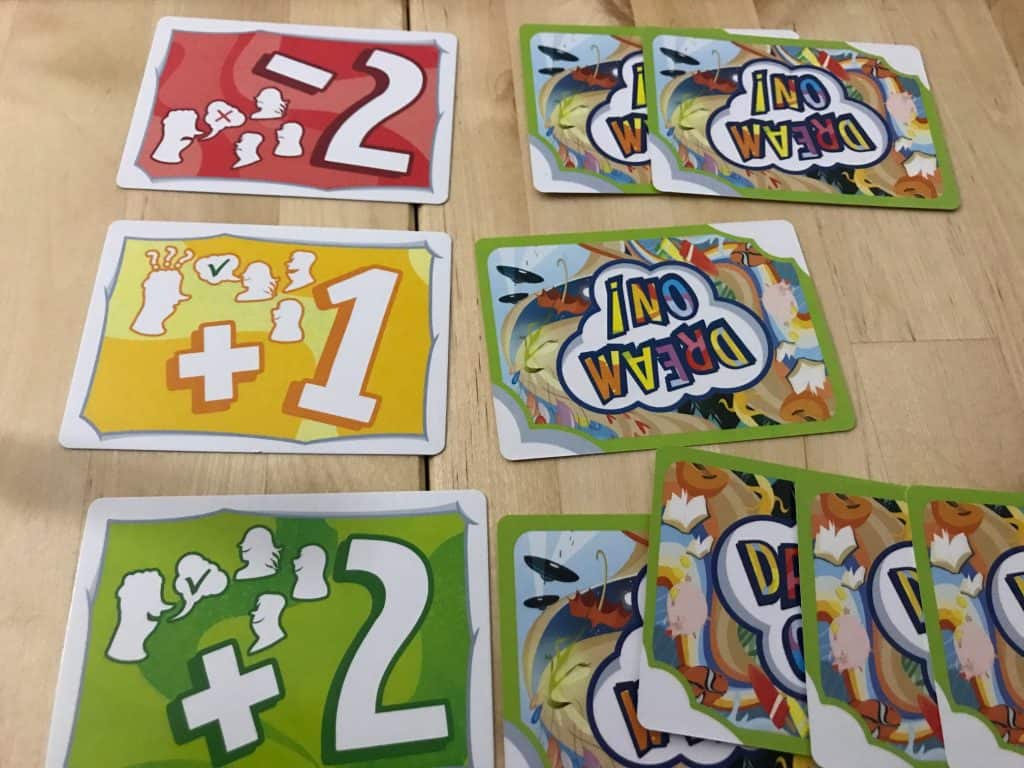
At a very basic level, Dream On! is a cooperative storytelling game with a strong memory component. Players will play cards in no particular order to a row or column of cards (whichever works best). You have a set amount of time in which to play cards, but don’t play them too fast, because when you’re done and timer is off, you’ll need to remember every card you played.
Players take turns pulling cards from the facedown stack of cards you just played and trying to remember what they are. You get 2 points if you remember, 1 point if you remember with help, and minus 2 points if you get it wrong. High scores are tabulated and compared against the book to see how you did.
Here’s a quick video showing you what this looks like:
Seems easy, right?
To some degree, yes. If you go slow enough and repeat each piece of the story as you go through it, you’ll remember most of them. Even with the chaos of multiple people playing, the human mind is really good at remembering images in context.
But here is where things get tricky.
If you play cards one at a time and slowly recite them, you may be able to get 10-15 cards out…at the most.
The highest scores you’re aiming for? In the 40’s and 50’s with a special note for 61+ points. That means playing out and remembering 31 cards in two minutes…perfectly. That, my friends, is not easy for most people.
What We Like About Dream On!
There really isn’t much in this box. It has 156 cards, a timer, and the scoring cards. You could play this game with Dixit and a timer on your phone (in case you want to give it a shot).
But there are three reasons I really like it and have decided to add it to my party game collection.
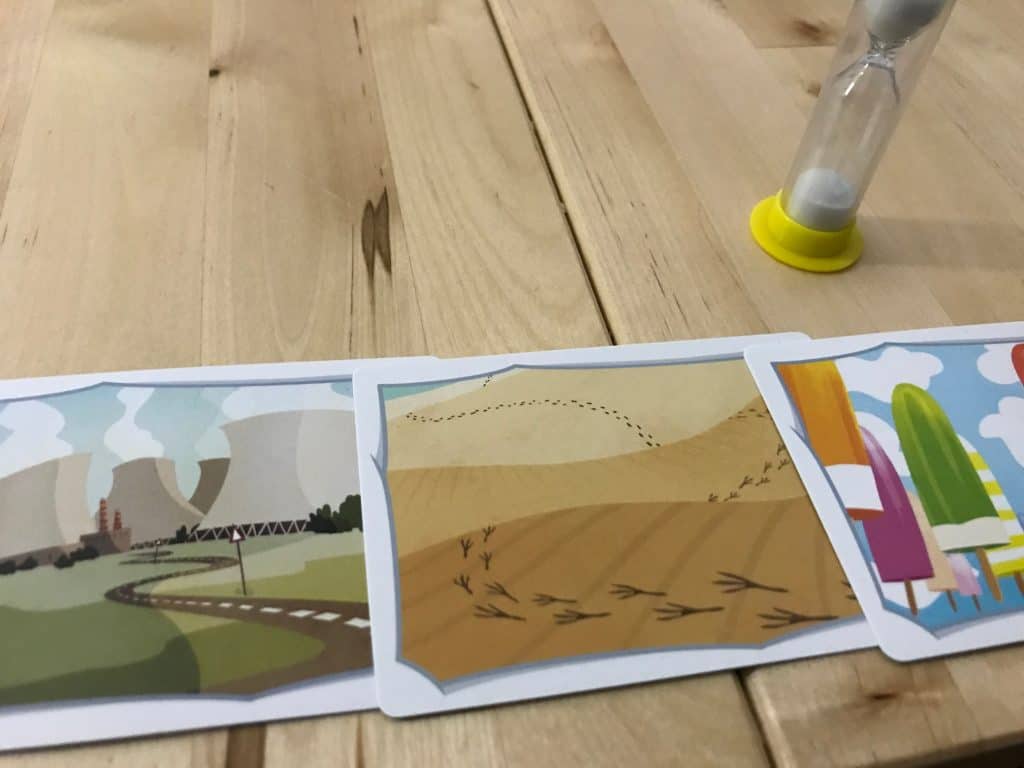
First, the game is very accessible. The box says 7+, but you could play this with a four year old if you went slow enough. Each illustration is very clear (and yet still evocative).
I’ve played with my kids, my friends, and perfect strangers, and always had a good time. Some people aren’t fans of memory games, but the ability to rely on your fellow players for help removes the scapegoat complex you could easily get in a game like this if you were the only one who forgot stuff.
Second, the game manages to straddle a frequently mishandled line between party games and games that make you think. Too often, party games, especially those that rely on creativity and storytelling require people to come decently far outside their comfort zone.
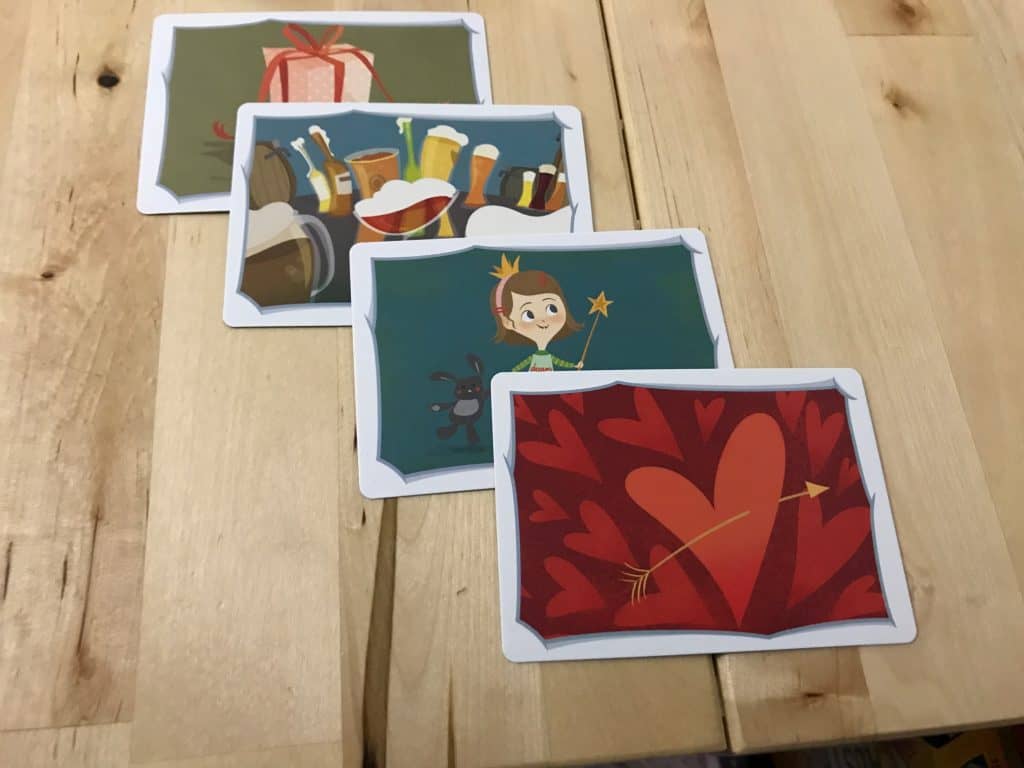
Some people don’t like it, and you have a split room. Dream On! has enough structure and little enough time that the storytelling aspect is more of a mechanism than an activity. You have to build a story around the cards you play, or you won’t remember them when the time comes for recall. It works and it is far less stressful than it seems like it should be.
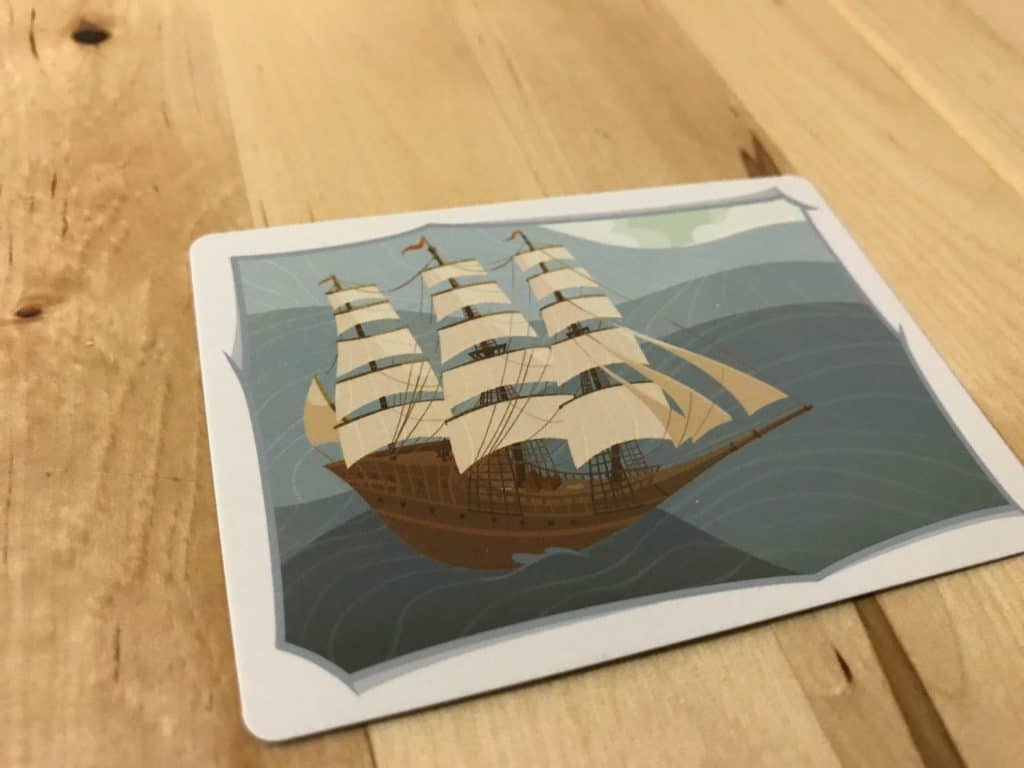
Finally, the game’s artwork just works. It’s dreamlike with lots of flowing lines and bright colors, but it isn’t quite as chaotic and insane as Dixit or Mysterium. Cards are rarely open for interpretation, but they are nonetheless nice to look at, creating a pleasing tableau. It’s not the best artwork you’ll ever see in a game, but it works perfectly for what this game is doing.
What We Don’t Like About Dream On!
Okay, so this is still a party-style game that is heavily reliant on a certain amount of creativity and quick thinking. There are people who will not like that. It’s not going to be a universal success in your game group, no matter how you present it.
There have been at least a couple people I’ve played with who, while not upset at the game, weren’t overly impressed, largely because this is not their type of game. Some people don’t like memory games (I normally don’t), and others want more structure and rules to follow in obtaining those points (and hence dislike most storytellers).
You can’t fix that and Dream On!, while better than many, is still very much in that category. One other important thing to note here. The box is too big. Not surprising in the least. Most boxes are too big these days (especially from CMON), but with only 156 cards in there, this could have fit in a Grizzled sized box and been easier to toss in the bag as a filler. As it is, it’s slightly larger than a Codenames box.
The Bottom Line
Dream On! is a fun, light memory-based storytelling game that worked well for me and my group. As someone who doesn’t typically like this kind of game, I found myself quite enjoying the rapid two-minute storytelling rounds and point-driven recall sessions. The game plays differently with different audiences and player counts, so may have a place on your shelf for any number of potential situations.
SUMMARY & RESULTS
Dream On! is a solid storytelling game that draws on the visual nature of memory. The cooperative, recall-driven scoring works well, even for those who have issues with this type of game and children take to it quickly. It doesn’t solve the storytelling-party stigma, but it’s a solid entry in the space.
7.0
Play

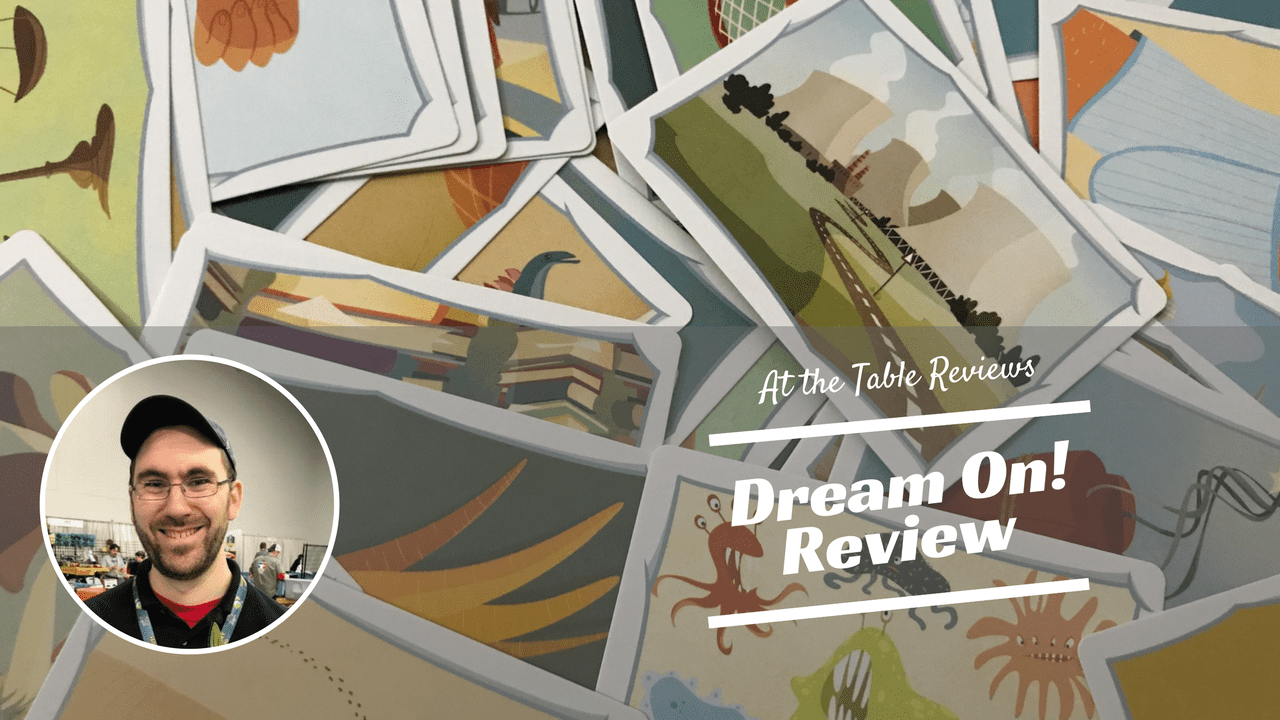



Show Comments